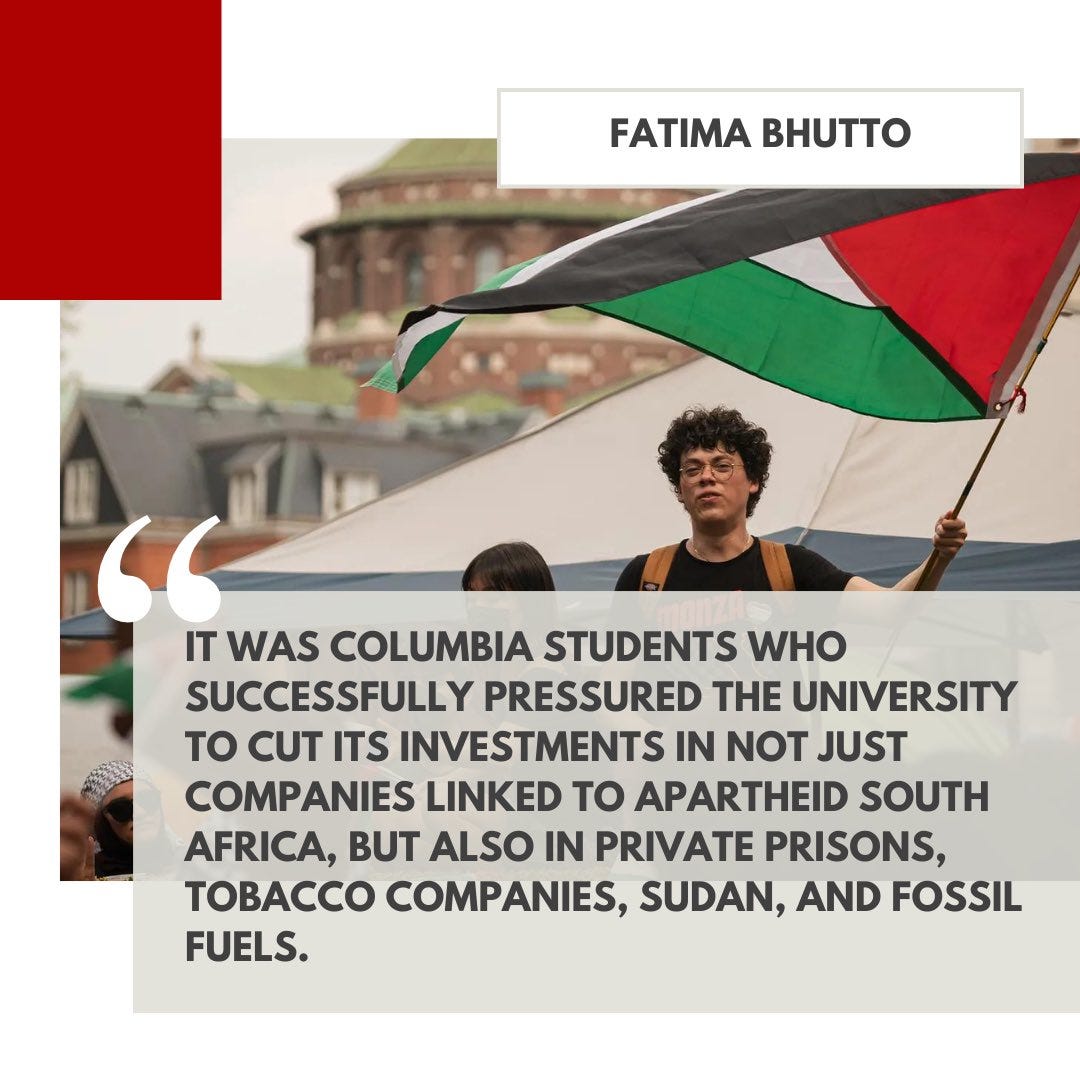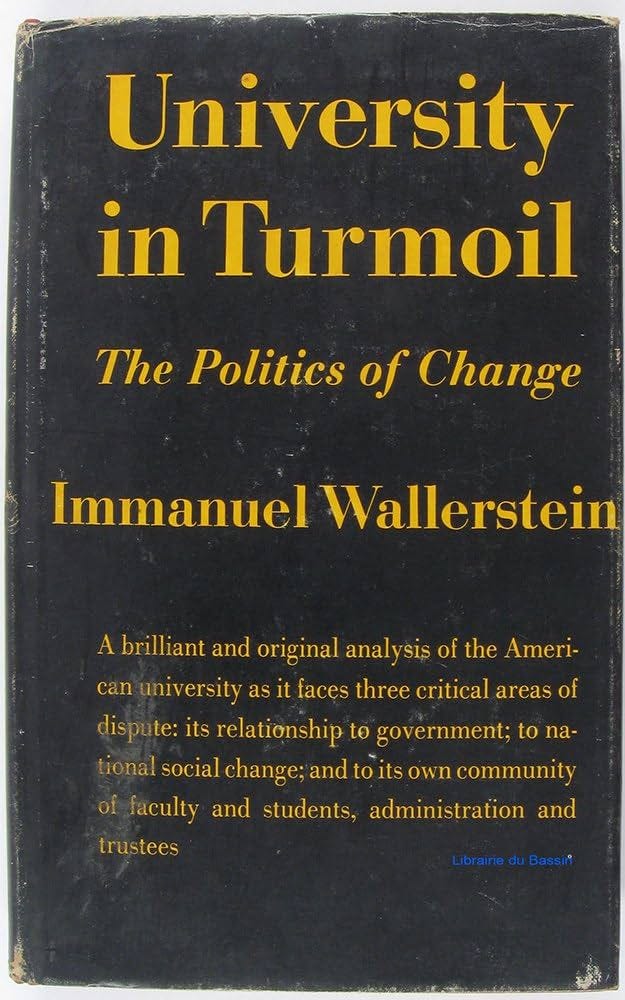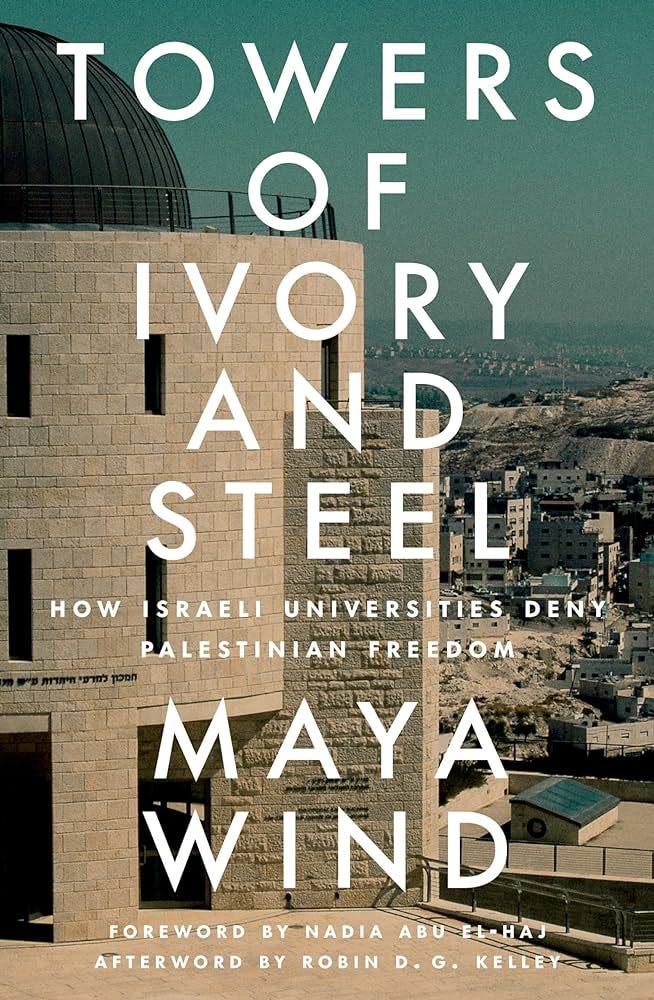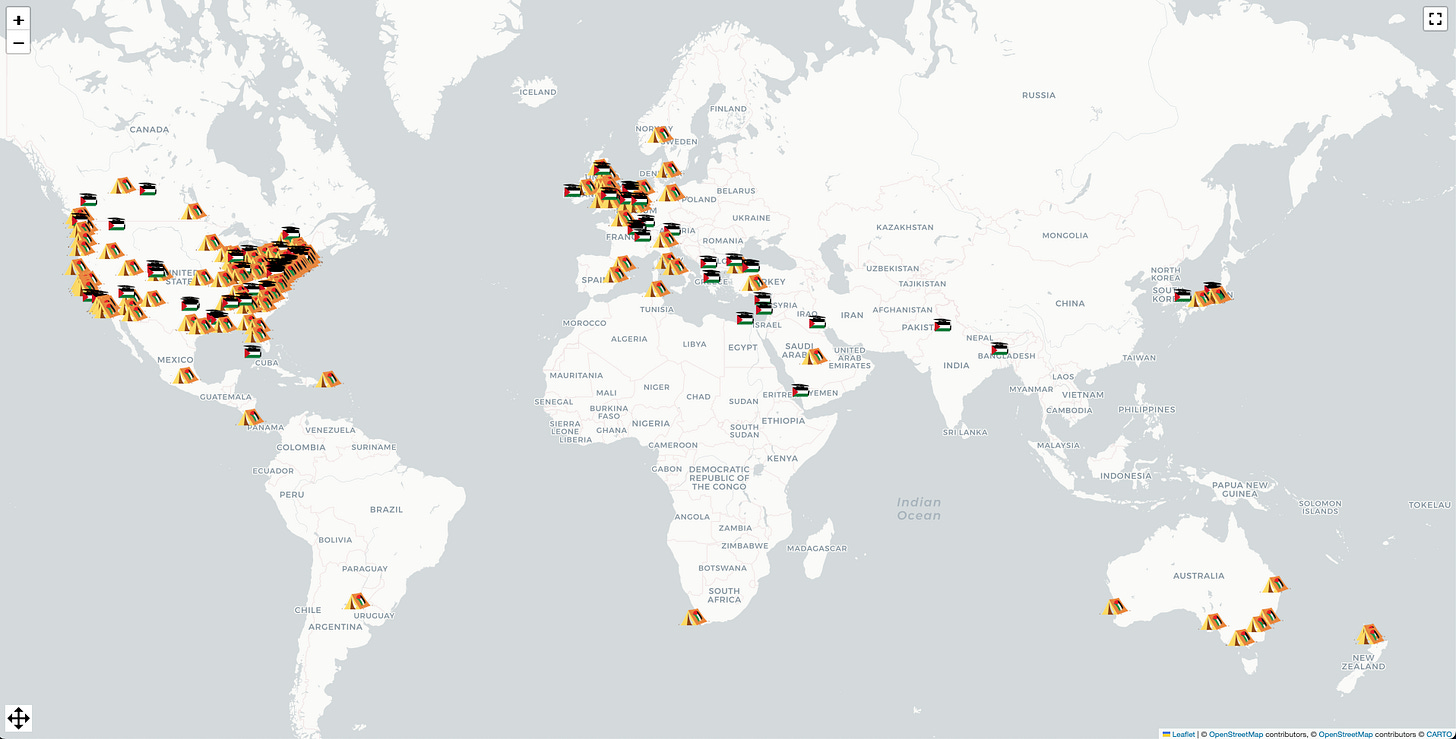3D Roundup: The University in Turmoil
Featuring Fatima Bhutto, Immanuel Wallerstein, Maya Wind and more. With a striking video report from the West Bank and revolutionary Palestinian poetry set to beautiful Lebanese music.

Happy Friday! The 3D roundup is a special section of The Rift newsletter where I share interesting things to read, watch and listen to. Make sure not to miss any future roundups:
1️⃣ Read
A powerful piece by the Pakistani writer Fatima Bhutto in defense of the student protests in solidarity with Palestine:
“Students protesting Israel’s genocidal war in Gaza have ignited in me an electrical feeling I had almost forgotten: hope.”
Read it here (and check out Mehdi Hasan’s new Substack project: Zeteo)
An interesting essay by the literary scholar Bruce Robbins for The New Statesman, on Immanuel Wallerstein’s relationship to the May ‘68 student protests at Columbia:
“The university is and will remain ‘a bastion of the center…’ In other words, it will never be a bastion of the left … What the university can be for the left is what it turned out to be for [Immanuel Wallerstein], as for Edward Said and Noam Chomsky: a ‘refuge and a point of sortie’.”
Read the full piece here.
A report by the LSE Student Union’s Palestine Society detailing the School’s “complicity in genocide of the Palestinian people, arms trade, and climate breakdown.”
Key findings of the report:
LSE has investments worth £48,515,817 in 80 holdings in 53 companies that are involved in crimes against the Palestinian people.
LSE invests £5,310,537 in 11 companies that are profiting from the genocide in Gaza. They include Toyota (£2,261,650), General Motors (£1,434,427), BAE Systems (£877,282), Caterpillar (£233,452) and RTX (formerly Raytheon Technologies) (£120,042).
LSE invests £8,733,746 in 21 companies that work with and/or supply the Israeli military and/or police. They include Toyota (£2,261,650), Sony (£1,912,377), General Motors (£1,434,427), BAE Systems (£877,282), and Motorola (£797,109).
LSE invests £1,627,002 in four business enterprises listed by the Office of the High Commissioner for Human Rights as involved in illegal settlement activities. These companies are Airbnb, Alstom, Booking, and Ithaca Energy.
LSE invests £34,951,628 in 19 European financial institutions that are investors and/or creditors in business enterprises listed by the Office of the High Commissioner for Human Rights as involved in illegal settlement activities. These companies include Santander (£3,905,836), Kreditanstalt für Wiederaufbau (KfW) (£3,062,292), Deutsche Bank (£2,990,261), Lloyds Banking Group (£2,982,885), and Barclays (£2,872,634).
LSE invests £4,163,936 in 9 companies involved in resource extraction and/or operations in the Occupied Palestinian Territory. These companies include Siemens (£2,217,612), Booking (£1,575,071), Cisco (£173,744), ABB Ltd (£111,506) and Airbnb (£34,749).
Download the full report here.
Like the LSE report, I covered this in yesterday's post, but it’s worth sharing again: a very timely new book by the Jewish-Israeli anthropologist Maya Wind on the role of Israeli universities in the settler-colonial project:
Israeli universities have long enjoyed a reputation as liberal bastions of freedom and democracy. Drawing on extensive research and making Hebrew sources accessible to the international community, Maya Wind shatters this myth and documents how Israeli universities are directly complicit in the violation of Palestinian rights.
As this book shows, Israeli universities serve as pillars of Israel's system of oppression against Palestinians. Academic disciplines, degree programs, campus infrastructure, and research laboratories all service Israeli occupation and apartheid, while universities violate the rights of Palestinians to education, stifle critical scholarship, and violently repress student dissent. Towers of Ivory and Steel is a powerful expose of Israeli academia’s ongoing and active complicity in Israel’s settler-colonial project.
Order the book here.
2️⃣ Watch
I’ve been keeping an eye on the spread of Palestine solidarity protests to university campuses around the world. The Palestine Is Everywhere website has a live map showing 247 solidarity actions and 174 protest encampments globally:
My friends Ross Domoney and Antonis Vradis were recently in the West Bank for a new documentary film project when they got caught up in the most destructive IDF raid in decades. They share this powerful video report from the front lines:
3️⃣ Listen
This enchanting song by the Lebanese jazz and folk rock musician Issam Hajali has been seared into my mind ever since I first heard it on FIP Radio a few months ago:
Just as incredible as the song is the story behind the man who wrote it—and the revolutionary Palestinian poet whose verses provided the lyrics:
“In 1976, Hajali, who was politically ultra-left, fled Lebanon with his wife, first to Cyprus, and then to Paris, where he stayed in 1977, before going back to Beirut. In his last week in Paris, Hajali, together with Rogér Fakhr, another Lebanese musician, and a number of musicians from various countries, whose names were eventually lost, recorded his debut album, Mouasalt Ila Jacad El Ard. The record combined santur with Western-style music with vocals, jazz guitars, and synthesizers. The texts were taken from Palestinian revolutionary poet Samih al-Qasim. The album was not properly released at the time and circulated on tapes, with an estimated 100 copies. In Beirut, it came to the attention of the musician Ziad Rahbani who popularized it. In 2019, the record was re-released by Habibi Funk. One of the compositions, Ana Damir El Motakallim, has been compared with Stairway to Heaven and described as innovative in Lebanese music.”
That’s it for this week! If you liked the 3D roundup and would like to keep receiving it in your inbox, you can sign up to The Rift newsletter or upgrade to a paid subscription here:








